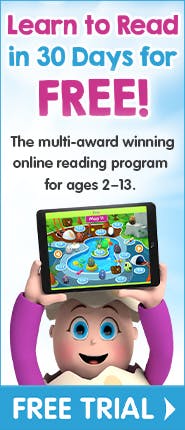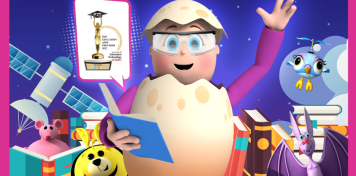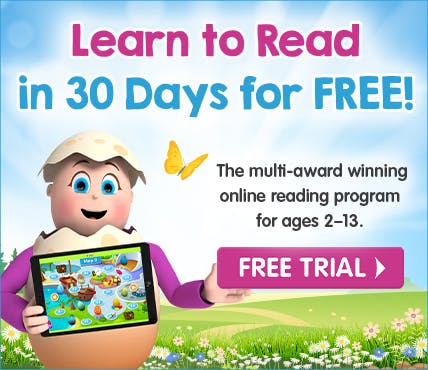


How the Science of Reading Helps Kids Learn to Read

Learning to read is one of the most transformative skills a child can master, unlocking pathways to all kinds of other knowledge. Being able to read and comprehend is also very important for success in maths and science.
What is the Science of Reading?
The easiest way to understand the science of reading is to see it as a body of research examining what leads to skilled reading, and how to assess and effectively teach reading to early learners. The study is constantly being added to by a host of experts from multiple disciplines including:
literacy
cognitive neuroscience
education
linguistics
neuroscience
psychology
implementation science.
The goal of this collective focus is to develop evidence‑based best practices for teaching and learning foundational literacy skills. The combination of contributors to the science of reading means they've been able to understand the many processes and skills needed for children become highly capable readers, from how the brain acquires the knowledge to the final goal of reading comprehension.
Some kids pick up reading easier than others, but one of the main aims of the science of reading is to prevent reading difficulties in at‑risk early learners and help those who are already falling behind in older grades.

According to the science of reading, for students to succeed, they need explicit instruction with a systematic way of teaching, focusing on the following main components of reading:
Phonemic Awareness
Fluency
Vocabulary
Reading comprehension.
From a neuroscience perspective, the science of reading helps us understand the cognitive processes early readers need for skilled reading. These include attention, auditory and visual processing, working memory, and more.
Five Key Points of the Science of Reading

Reading does not come naturally, it is an acquired skill
Words are first learned in spoken language, from what has evolved to be a natural process. This is not the case with learning to read.

Reading is a skill that needs to be taught. Help your child get started on the path of learning to read with the Reading Eggs Free Trial.
In the past, a popular thought was that kids could also pick up the skill of reading on their own if they had access to books or were read to in their home and there's no denying that early shared reading is important.
The science of reading researchers believe early shared reading experiences are essential to the enjoyment of reading however this is not the most effective way of teaching children to read, particularly children who struggle.

Instruction Needs to be Explicit and Systematic
Instructing early learners on all the fundamental parts of learning to read, in a highly structured, carefully sequenced manner is an essential part of the teaching of the science of reading. Phonics instruction plays a major role, but researchers insist it should not be taught in isolation.
Another instruction recommendation is that kids need plenty of time to practise new skills they've been taught, before moving on. Unfortunately, this is not always possible in a classroom full of unique children with varying abilities. The science of reading research finds this is a major stumbling block, preventing children who struggle to learn to read from reaching a proficient level.
Teachers need to explain letter‑sound relationships in a clearly defined sequence, with simpler, more straightforward skills being introduced before more complex ones, and concepts gradually building upon one another. The science of reading researchers and advocates believe that this kind of systematic approach develops crucial reading and learning skills. It also helps with cognitive skills like working memory and auditory processing, too.
By teaching in an order that makes sense, is often repeated, and built upon, young learners with developing brains and limited working memory are not overwhelmed.
Fun phonemic awareness activities online!
Reading Eggs is based on the foundation of the five pillars of reading, which is also the foundation of the science of reading research. Fast Phonics was developed, specifically in response to more research into systematic, synthetic phonics. Reading Eggs teaches phonics with lots of fun, interactive phonemic awareness games to help children learn to read.

The Simple View of Reading
The Simple View formula explains the role decoding plays in reading and it is the widely accepted reading model by scientists (Gough and Tunmer 1986). It shows that reading has two basic components, word recognition (decoding) and language comprehension.
The formula offers teachers help when it comes to assessing kids struggling with their reading and then being able to provide them with the right instruction.
Decoding (D) x Language Comprehension (LC) = Reading Comprehension (RC)
The Simple View shows that a student's reading comprehension (RC) score can be predicted if we know their decoding (D) skills and language comprehension (LC) abilities. Successful decoding and comprehension of written text result in true reading comprehension results.
Scarborough's Reading Rope takes this idea to the next step. Invented by Hollis Scarborough, a leading researcher of early language development, it shows all the interconnected strands needed to get a child to Skilled Reading level.
The two main skillsets, Word Recognition and Language Comprehension have subskills that early learners need to combine, and master with repetition and practice. The end goal is Skilled Reading, meaning that that the child has become a more accurate, fluent, and increasingly automatic reader.

Phonemic and Phonological Awareness
Phonemic awareness is a pre‑reading skill, which focuses on understanding how sounds work in spoken language, that is, rhyme, first sounds, and syllable segmentation. Reading Eggs offers lots of phonemic awareness games in the Playroom and also in Reading Eggs Junior.
Building phonemic awareness helps kids with their fluency when it comes to learning to read. The science of reading recommendation is for intensive phonemic awareness training, along with a review and repetition cycle until the student has clearly grasped what they're learning.
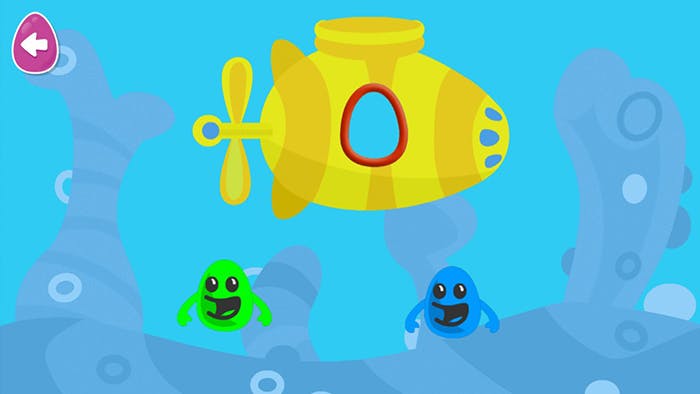
Teaching how sounds work when spoken is an important step in learning to read. For this Reading Eggs Junior game, children need to listen to the sound, discriminate between the two options and match. It's a great activity for building phonemic awareness! Reading Eggs Free Trial.
Best practice for the teaching of the science of reading is to instruct regular words according to phonetic patterns, while analysing the differences of irregular words.
Phonemes are the sounds that letters make Graphemes are written symbols representing sound
By helping struggling readers to phonemically analyse new words for the regular grapheme and phoneme patterns and pointing out irregular (tricky) elements they'll be able to link the letters to the phonemes in their memory. The research suggests that this way of teaching gets better results, helping kids permanently store words in their long‑term memories.
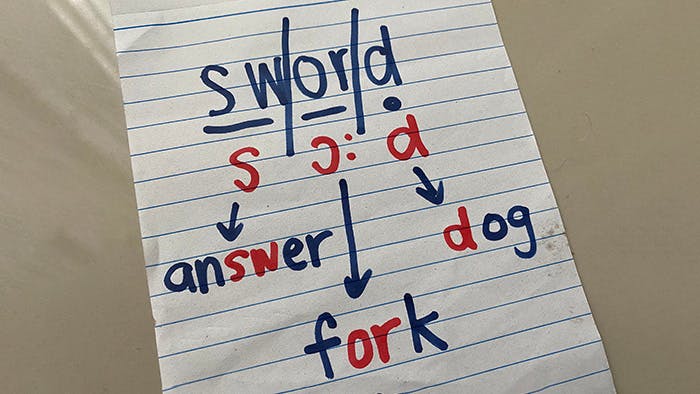
Assessing is also important to make sure that kids practising these skills are establishing what's known as a solid orthographic lexicon (their brain storage system for individual word spellings).
The concern is that struggling readers who have not developed the necessary phonemic awareness skills in the classroom, before moving on to the next step, will continue to find reading challenging and have poor orthographic mapping skills.
According to Kilpatrick's Assessing, preventing, and overcoming reading difficulties (2015):
"Intervention studies that allow students to complete their phonological awareness development (along with teaching and reinforcing phonics skills and phonic decoding and providing opportunities for reading connected text) produce very large gains in word-level reading skills.”

Help your child get on top of phonics with Reading Eggs. Free Trial

Orthographic Mapping
To become good orthographic mappers, children need to master the skills discussed above – phonemic awareness and knowing their letter sounds.
Research conducted on orthographic mapping reveals how kids develop automatic retrieval banks in their brains. It also shines a light on why certain students face difficulties developing this skill.
"Orthographic Mapping is the process we use to permanently store words into long‑term memory.”
– David A Kilpatrick
Orthographic mapping is supported by phonics, as it's designed to build and strengthen relationships between sounds and letters and sequences of letters. This can explain why kids who haven't been taught phonics correctly, or who have poor decoding skills, struggle to learn words they're only exposed to a few times.
What Can Educators Do With This Research?
The main way schools can use the theories or knowledge from the science of reading research, is by being open‑minded to changing their practices, and keeping teachers up to date with evidence‑based teaching strategies. Researchers hope this will allow teachers to choose and implement what they think will work best for most of their students.
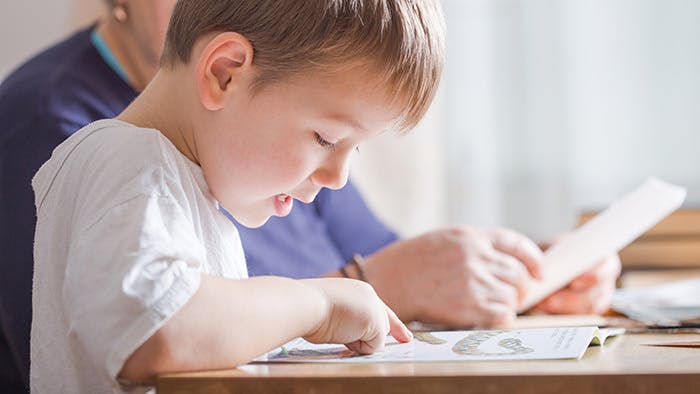
Teachers can help with kids by considering adding Science of Reading strategies in their classrooms. Parents can also help. Try Reading Eggs today for lots of great resources. Free Trial
Phonics is playing more of a role in rich literacy programs than ever before and is seen as an essential tool for kids learning to read. Teachers and schools are encouraged to provide environments with rich literature opportunities alongside explicit, systematic, early phonics decoding skills.
Educators are encouraged to review the research, see what else their students can learn to become proficient readers and apply it in their lessons. They can help early learners make the connection between speaking, listening, reading, spelling, and eventually writing.
What Can Parents Do With This Research?
Phonemic awareness is a precursor to reading which means it's something parents can help their kids with at home. Phonological awareness skills are important for the development of understanding letter sounds, so helping early learners with this gives them a head start.
Something else parents can do to help with enhancing their child's vocabulary is to read books together. Cuddle up and watch your little one pay attention to your tone, pronunciation and the way you emphasise particular words. It's a great way to show kids how enjoyable books and reading can be! Kids are always more engaged when they feel an activity is fun so why not help them develop a love of reading as early as possible.
Reading Eggs has thousands of e-books and also activities to try with your little one; everything you'll need including alphabet games, letter puzzles, and so much more.
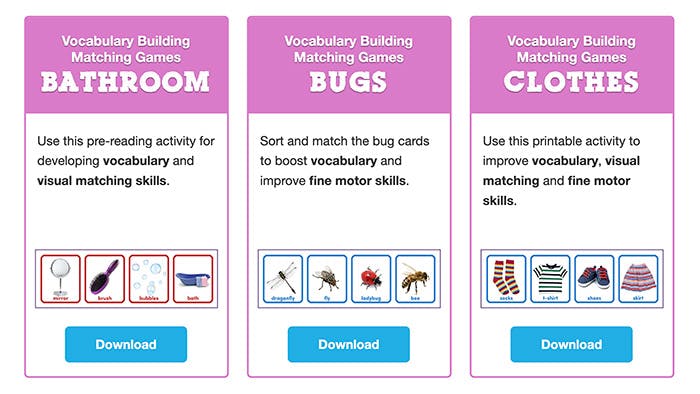
Reading Eggs makes it easy for parents and kids to find the activities they need to succeed when learning to read. Sign up for a Free Trial today.
Here are some more free resources that parents can access to help their child consolidate their reading skills.
Reading Eggs is all about helping kids learn to read and building the strong foundations they need for future academic success. Both the Reading Eggs and Fast Phonics programs have the best outcome when kids work through the lessons systematically. In keeping with the science of reading mantra of revise and repeat, we recommend doing so with our lessons to make sure kids have reached a solid understanding before moving on to other lessons. This way it will be easier for early readers to reach the ultimate goal of proficient reading – comprehension.
Fun phonemic awareness activities online!
Reading Eggs features hundreds of fun and interactive online lessons that build essential phonics and phonemic awareness skills. Based on solid scientific research, the programme has been shown to increase children's reading skills in just 15 minutes a day.
References
Gough, P. and Tunmer, W. (1986). Decoding, reading, and reading disability. Remedial and Special Education, 7, 6–10.
Kilpatrick, D.A. (2015). Assessing, preventing, and overcoming reading difficulties.
